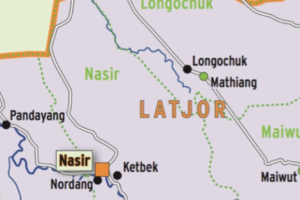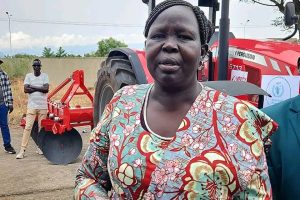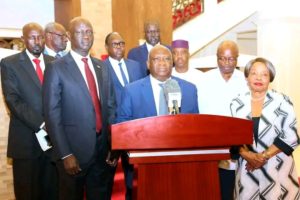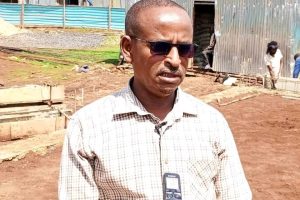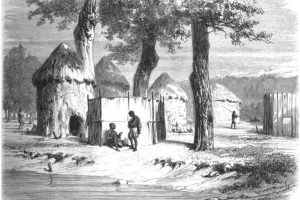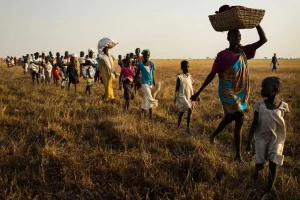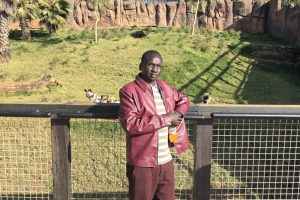By Lul Gatkuoth Gatluak Date: October 12, 2018
The past two weeks which started toward the end of September and early October had seen multiple clashes engulfing few regions of Ethiopia particularly the Afar, Benishangul-Gumuz and Gambella National and Regional States.
Rival ethnic groups armed with knives, Machetes, stones as well as sticks lashed at each other mercilessly taking lives. To many observers who witnessed the unfolded events in those states, it was nothing short of a demand for power grab. These occurred despite the 11th Conference of EPDRF held in Awasa with the aim of encouraging Ethiopians to work together and make the country the greatest it can be.
Yet, violent groups was abusing change brought upon by the Prime Minster and tried to sustain their motive. This was obvious for the case of Gambella as some mob took to the streets demanding changes of Gambella Administration just because some other states in the country have gone through some sort of change.
Due to those conflicts, many innocence lives were lost. Some of the victims met their fate in the hands of violent groups while commuting not knowing what they had to encounter. By the time of this writing, normalcy and lull are yet to be seen as the situation for Gambella is not fully secure.
There is no clear indication whether the government has taken any security measures to cease escalation of the deteriorating security crashes in the above-mentioned areas, except mouthpiece reports that some mastermind individuals who engineered and instigated violent are detained. Even schools which supposed to be opened last month, are remain closed, given the fact that safety is not grantee.
At this juncture, it is indubitable that insecurity is obstructing progress. One’s purpose to inscribe is to alert Ethiopian officialdoms, and pinpoint some of the policies that could derail Dr. Abiy Ahmed agenda of reform had he not changed course to let go some of the policies he has introduced in Ethiopia since taking the office in April this year.
While taking the torch, Dr. Abiy immediately introduced drastic change in Ethiopia political sphere. Some of the changes he has introduced include the release and pardon of political detainees, lifted bans and open up dialogue with domestic political parties, tour Ethiopia regional States, especially areas that were affected the most during anti-government demonstrations, normalizing relations with Eritrea President Isaias Afwerki, and finally paying visits to regional and international countries.
These actions generate jubilation among Ethiopians, the whole continent of Africa and the world at large. Many people fall in love with Dr. Abiy commendable inspirational moves, including his message of unity through diversity and revival of “Ethiopianism.”
However, these jubilant inspirational ideas young Ethiopian reformist has introduced, might be put to waste had he not changed course to control some violent entities that reintroduce demonstrations his administration coming to terminate.
One’s aim of writing, is to communicate and illustrate that, Ethiopian’s Prime Minister Dr. Abiy Ahmed, still has a hard rock ahead of him to climb. Prior of taking up the torch, Ethiopia, was experiencing a widespread uprising which started sooner after the 2015 election.
That election burst out a protest which increased in 2016 and engulfed large region especially in the most populous state, Oromia. Consequently, government security forces tried to quell the unrest with lethal force but such moves
According to demonstrators, the government was only interested in political and economic marginalization, corruption, land grabbing, and bad governance. In a short while out of those demonstrations, many people lost their lives as the government was trying to crackdown protesters through the use of excessive force. As determined as they were, Oromo protesters did not show any sign to back down.
Their enthusiastic intensely grew bit by bit and that agitation had lingering in the ears of Federal government officials in Addis Ababa including Prime Minister Desalegn. Ironically, the ruling party EPRDF under former Prime Minister Hailemariam Desalegn began to struggle seeking how to cope and deal with the rising situation. Exaggeratingly, the administration had made some attempts to detained, issued State of Emergency and ordered marshal laws punishment to degenerate demonstrators motive, all these plans did not reach an inch to reverse the state of the affairs.
Henceforth, as the situation grew irrepressibly and Prime Minister Desalegn ran out of options to contain civil disobedience, the head of the State opted for nothing other than clearing the way so that new blood can pick up the torch and figure out how to deal with the cracking civil disorder. He settled for resignation. After Desalegn abrupt resignation, the country declared the State of Emergency aiming to block challenges or loopholes that may emerge despite the leadership vacuum. Fortunately, there was no serious political aftermath that emerged out of all these mentioned political maneuvering.
The nation has only gear up to find a new replacement, and hitherto, Dr. Abiy Ahmed emerged triumphant, surpassing other aspirants whose names were spelled out to occupy the country’s most powerful position. Truthfully, Dr. Abiy came to power in the middle of worse political crisis in Ethiopia that required a practical leader who has charismatic personality to turn things around without hesitation.
Succinctly, the above scenario is what brought political shift in Ethiopia, which mean, Dr. Abiy is a product of the impact of the political instability. Significantly, the young energetic Prime Minister began his tenure with a series of radical unimaginable changes or reforms, which include, the ending of the State of the Emergency that Desalegn administration had imposed in response to the widespread protest and reissued during his resignation, freeing political prisoners and proposing diplomacy tied with Eritrea.
Those moves touch the heart of many people around the world as previously touched base on in this article introduction. Considerably, his message for reconciliation, peace, forgiveness, change, democracy and the rule of law had ironed out grudges dissatisfied individuals held against previous administration.
Even political dissidents who were so extreme, had immediately shifted their stands and contemplated to join his call for new political dispensation in Ethiopia. Promptly, many political analysts took an initiative to analyze his speeches distinctly his inauguration speech where he referred Ethiopia as a “country of all” and it is Ethiopians’ common house. Moreover, he quoted an elderly man who said: “while alive, we are humans; upon passing, we become Ethiopian soil.”
Those words plus the remark of praising his mother, all Ethiopian mothers, and his wife had galvanized thought provocative feelings, and commentators describe his leadership style as similar to Western World leadership style. He is being viewed as a scrupulous political thinker who will transform Ethiopia to the most desirable stage. Notably, these are the strategies he want to keep preaching until when all Ethiopians and world citizens at large join him in their millions.
The policies Dr. Abiy need to change course of One notable disturbance aberration is the use of Oromo flag once Dr. Abiy appear in a rally. Oromo natives seem to disparaging Ethiopia national flag and considering substituting it with their flag or else, Oromia region could secede as the intention has been for years. The use of relinquishing the national flag has been adapted by other ethnic groups as that appeared to be the case in Anywaa demonstrators last week. Furthermore, Dr. Abiy need to be cautious whenever he offered amnesty to those who took up army against the State.
He has to make sure, a solid agreement is reached by his administration, and that group is not practicing dangerous political influence that will cause chaos. The last two week clashes, were influenced by some aspirant delegations Prime Minister Dr. Abiy has invited to his proposed conference.
Had those individuals did not persuade their kinsfolks, innocent who lost their lives would have not died. Similar occurrence should be prevented by making sure that invited delegations or political groups are abide with rules and regulations of the administration. Another issue Prime Minister Abiy has to pay attention to is the regional politic in Gambella.
For centuries, Anywaa and Nuer have been rivaling in their frontier. Although the two groups have lived together and intermarried, yet, segregation still outweigh mutual understanding. One of the issue that endangered the relation between the two communities is the claim of the land ownership. Anywaa claimed they entered Gambella in 17th century while Nuer followed suite in 18th and 19th centuries, instead of recognizing 18th and 19th centuries Nuer entry to Ethiopia, Anywaa corned whole Ethiopian-Nuer as “Refugees” a platitude term that has been distasted by Ethiopian authority since the end of Menelik II administration. If that the case, why would a society which have lived for more than 100 years should still be corned as “refugee”? For one, the rivaling between the two communities need to be given more attention, otherwise, derogatory terms to disparage each other will keep popping up.
To one’s best knowledge, Nuer are imperturbable society, they don’t ignite violent but react to it negatively. In summing, Prime Minister Dr. Abiy Ahmed need to change course in some of his policies, he has to keep in mind what brought him to power was the fact that the country was facing popular uprising that hit major regions with demonstrators blocking main roads.
Such a trend seem to repeat itself, where clashes occurred on the border between the central Oromia and western Benishangul-Gumuz regions as well as Gambella. Dozens were killed and many more were fleeing their homes. The government should work to stop those crisis that manifested in the country and Dr. Abiy Ahmed should focus more on getting rid of tribalism that has cost Ethiopia greatly then and now. It is one’s hope he will change course to some of the policies that could drag the country to square one.
Very Respectively
Lul Gatkuoth Gatluak The author is a political commentator: he could be reach at lulgatluak09@gmail.com or simonlul2000@yahoo.com


